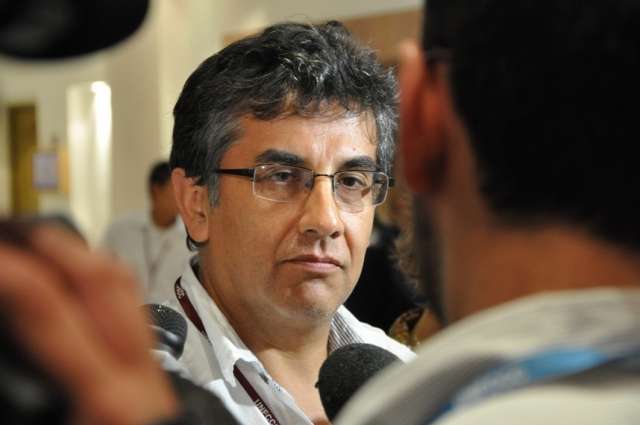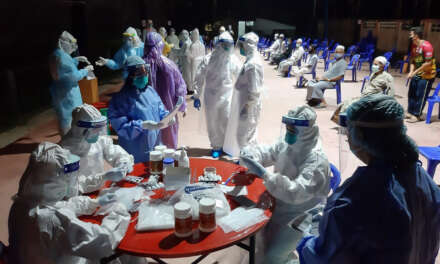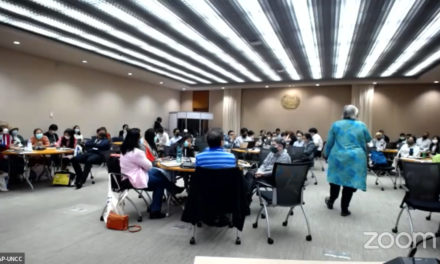by Pablo Solón
The overuse of a word can sometimes devalue it and make it lose its impact. The word “crisis”[1] no longer evokes fear or worry. Now, it is a word you hear almost everyday, and it has lost its significance. So today, when people hear about the crisis in Europe, there isn’t really an appreciation of the gravity of the situation. Things have been so bad for so long and everything seems to be in one way or another, in crisis, that people have been desensitized.
But the situation in Europe is, in the truest meaning of it, a crisis. And so as to convey the message that things are indeed dire, we will use a different word to refer to the European crisis. “Desmadre” in Mexico, is a particular, unique word to refer to a situation where everything is going wrong and falling apart. And in the case of Europe, desmadre is exactly the term to use.
THE NUMBERS ARE FALLING APART
The money in the European Central Bank (ECB) and the International Monetary Fund (IMF) is reaching its limit for current and near future bailouts for Greece, Spain, Portugal, Italy, and Ireland to name a few. Some countries have an unemployment rate of 25% and this figure goes up to a staggering 50% when accounting only for young people below 25 years of age. The economy of Spain shrank by 0.4% during the second quarter of this year.
These numbers do not only, not bode well for Europe, they should not be allowed under the European Union rules. The Maastricht treaty, or what is formally known as the Treaty on European Union, stipulates that the ratio of general government debt to gross domestic product cannot exceed 60% at the end of the year preceding a country´s admission to the Euro. Last year, Greece reached a public debt of 165%, Italy 120%, Ireland 108% and even Germany has 81%, that’s 13 points over Spain that had a general government debt of 68%. So, at the moment, not even Germany, seemingly the strongest of the European economies, is able to meet this requirement of the Maastricht treaty.[2]
When it comes to the fiscal deficit, the gap between the annual revenues and the annual expenditure, again the Maastricht treaty established that it should not exceed 3% of the GDP. At the end of last year, Ireland had a fiscal deficit of 8.3%, Greece 7.3%, Spain 6.4% and France and the Netherlands were over 4.4%.
The international trade of goods and services are no better and can probably help us understand the severity of the desmadre. Greece has a negative balance of -11.3 billons euro, Spain -7.3 and France -85.0. Germany, the exception, has a surplus of +54.6 billons euro[3] that is superior even to the China trade balance. This explains how Germany can handle its public debt and fiscal deficit, because it is able to offset it with its growing trade surplus. Greece, on the other hand, has both a massive public debt and a negative trade balance. Of course, other countries in this situation of deficit in their trade balance would resort to devaluating their currency in order to increase their exports and slow their imports. Greece, though, has no such recourse, because it no longer has its own currency, it has the euro, which obviously, it cannot devalue to offset a trade balance deficit. The recommended remedy, according to the IMF, ECB and the European Union, is to shrink Greece’s labor cost. And the escalating unrest in Greece is testament to the effectiveness of that recommendation.
THE BIGGER GLOBAL DESMADRE
The European desmadre though, is not happening in a vacuum. It is happening in the context of an even bigger global financialdesmadre.
Now, there are countless other pieces that have been written, describing the disaster of the global financial system, but what needs to be emphasized in this chaos is that the annual derivatives market has become 250 times bigger than the Gross Domestic Product of the world. It has reached the incredible figure of 1.5 quadrillion US dollars. In the European Union, it is 540 trillion euros compared to the GDP of the EU, which is only 13.2 trillion euros.
According to the European Commission, a derivative “is a financial contract linked to the future value or status of the underlying to which it refers (for example, the possible bankruptcy of a debtor); they are contracts which are not “executed on a regulated market”; derivatives are used in a variety of ways, including for purposes of hedging, investing, and speculating.”[4]
Simply put, the speculative economy is 250 times bigger than the real economy.
After the now infamous global financial collapse in 2008, it was clear that there was a way out of the chaos – to recover the control over the economy. Governments needed to prohibit certain derivatives, very strongly regulate other derivatives and have an economy that was not based on speculation. But the problem was that if you did that, the billionaires of the world were going to lose their money and their obscene profits. And since these billionaires, or the 1 percent exerted their power over governments, at the end of the day, nothing changed. It was business as usual. That is why, it is incredible that after the devastating financial crisis of 2008, that was precisely due to the speculation on housing mortgages, instead of putting an end to derivatives and betting, the speculators just moved to other sectors, generating the food crisis of 2009. Now, they are trying to develop a new sector for speculation, through the so-called “green economy” that intends to expand the speculative system of the carbon credit markets to all areas of the environment.
The European desmadre is not a market failure nor is it a system failure. It is the product of the system: this is how the system works. The logic of the capitalist system is the increase of the rate of profit at any cost: speculation, labor costs, the environment, human rights, name it. The system has no limits, and this is exactly what we are seeing in Europe.
WE ARE ALL PART OF THIS STRUGGLE
It is not true that through the implementation of austerity plans and bailouts the European desmadre will be solved. There is a much bigger systemic issue that needs to be urgently addressed. What is true is that the austerity plans that European workers are suffering are in some cases deeper than the structural adjustments that the Latin Americans have experienced. This desmadre has brought the suffering to all of us wherever you may be living. More and more workers of the north are feeling the pains that the workers in the south have long been going through.
What is amazing though, is that the chaos and disaster have just made the people stand up. For the first time in the past two decades, the social struggles in the north are spreading faster than in the south. But most important of all, more and more struggles in the world are beginning to be linked in a manner that we had not seen before. Employment issues, land issues and climate concerns are now being related to the same structural causes. Problems and demands have less and less possibility to be solved on an isolated basis. The economical desmadre is related to the environmental desmadre – they are two sides of the same coin.
The key then to overcome this global desmadre relies on how the different social movements are going to connect their struggles, look beyond their specific demands, sectors and national borders and begin to address the systemic issues. This is something that has to be built in practice and not only in theory. That is why it is so vital that the most real and effective solidarity be strengthened between the movements in the global south and in the global north. We are all victims of the same system. It is time for us to fight it together and win.
*Pablo Solón is Executive Director of Focus on the Global South and former Bolivian Ambassador to the United Nations.
[1] According to the Merriam-Webster dictionary, “crisis” connotes a rather dire situation, “a: an unstable or crucial time or state of affairs in which a decisive change is impending; especially: one with the distinct possibility of a highly undesirable outcome <a financial crisis> b: a situation that has reached a critical phase <the environmental crisis>. http://www.merriam-webster.com/dictionary/crisis?show=0&t=1343208421
[2] The Wall Street Journal. http://online.wsj.com/article/SB10001424052702303978104577363990386619350.html#project%3DEZNUMBS0312%26articleTabs%3Dinteractive
[3] European Commission http://epp.eurostat.ec.europa.eu/tgm/refreshTableAction.do?tab=table&plugin=1&pcode=tet00039&language=en
[4]http://europa.eu/rapid/pressReleasesAction.do?reference=MEMO/12/232&format=HTML&aged=0&language=EN&guiLanguage=en








![[IN PHOTOS] In Defense of Human Rights and Dignity Movement (iDEFEND) Mobilization on the fourth State of the Nation Address (SONA) of Ferdinand Marcos, Jr.](https://focusweb.org/wp-content/uploads/2025/07/1-150x150.jpg)

